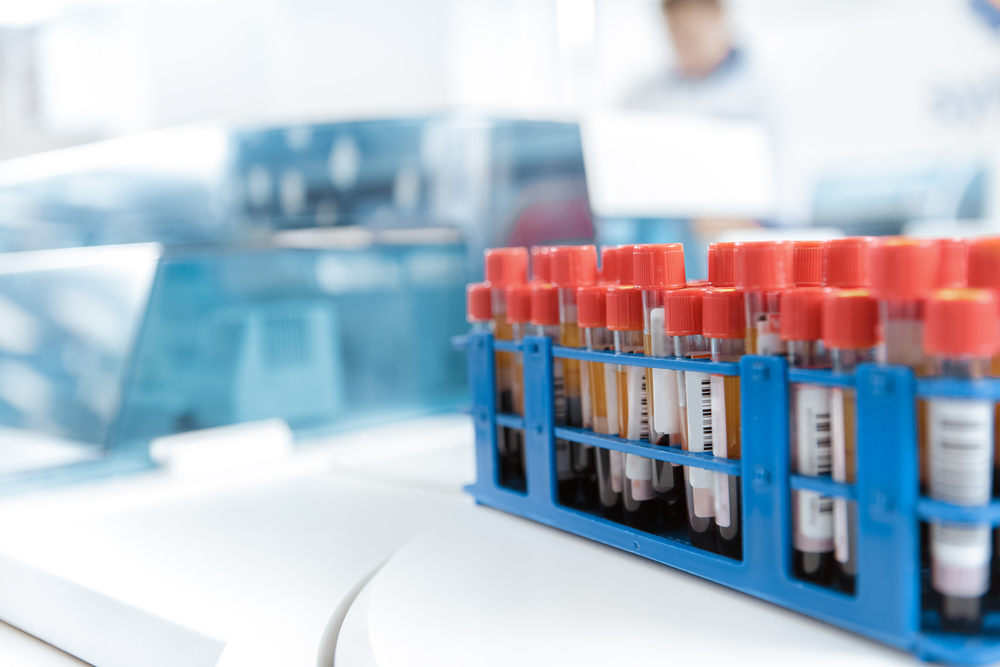Don't Panic! Learn About Diseases Identified through Blood Sampling

Routine blood sampling is vital for early detection of health issues and guiding appropriate treatment. Healthcare providers advise getting a blood test annually as part of a routine health check-up. AstoLabs offers convenient at-home blood checkups in Chennai, ensuring timely access to valuable health insights. Through lab analysis, even symptom-free changes in the body can be detected, providing crucial information about overall health.
In this article, we will explore the importance of blood testing and discuss various diseases that can be identified through blood sampling. We will also delve into the innovations in blood testing methods and how they have revolutionized the field of diagnostics.
Why Blood Testing is Important
Blood tests offer a multitude of benefits in healthcare, enabling early disease detection, risk evaluation, monitoring of organ functions, disease management, prevention, and aiding in therapeutic decisions.
- Early Disease Detection: Blood tests are crucial in catching diseases, such as cancer, at their nascent stages. By analyzing blood samples, healthcare professionals can identify cancerous proteins, cells, or other substances that indicate the presence of the disease.Tests like complete blood count (CBC) can detect abnormal blood cell counts, while protein testing can identify elevated levels of immune system proteins often associated with multiple myeloma.
- Risk Evaluation: Blood testing helps in foreseeing susceptibility to certain conditions, such as inherited breast cancer. By analyzing specific genetic markers and hormone levels in the blood, healthcare providers can assess an individual's risk of developing certain diseases and take proactive measures to mitigate those risks.
- Monitoring: Blood tests provide valuable insights into organ functions and medication concentration within the bloodstream. By regularly monitoring blood samples, healthcare professionals can assess the effectiveness of treatments and medications, adjust dosages if necessary, and ensure optimal patient care.
- Disease Management: Blood tests are instrumental in tracking disease progression and evaluating the efficacy of ongoing treatments. By measuring specific biomarkers in the blood, healthcare providers can assess the response to treatment, make necessary adjustments, and optimize the overall management of the disease.
- Prevention: Blood testing, especially research on biomarkers, can support translational medicine and help doctors identify imminent health issues.By analyzing blood samples for specific biomarkers associated with diseases like diabetes, healthcare providers can identify individuals at risk and guide them towards preventive measures, such as lifestyle modifications or early interventions.
- Treatment: Blood tests provide critical information that aids in therapeutic decisions. By analyzing blood samples, healthcare professionals can determine the suitability of certain treatments, monitor drug levels, and adjust dosages to maximize therapeutic outcomes.
Identifying Diseases Through Blood Testing
Blood testing is not only essential for the early detection of cancer but also for identifying various other diseases. Let's explore some specific diseases that can be identified through blood sampling:
Cancer
Blood tests play a significant role in the detection and monitoring of cancer. While blood tests alone cannot determine the presence of cancer, they can provide valuable insights and help in the diagnosis process. Here are some blood tests commonly used to identify cancer:
- Complete Blood Count (CBC): Determines the number of blood cells in a sample and can help detect blood cancer by revealing abnormalities in blood cell counts or the presence of abnormal cells.
- Protein Testing: Examines the presence of abnormal immune system proteins that are often elevated in people with certain types of cancer, such as multiple myeloma.
Heart Disease
Blood tests are crucial in diagnosing and assessing the risk of heart disease. Specific substances released by the heart when the heart muscles are damaged can be measured through blood tests. The following blood tests are commonly used in the diagnosis of heart disease:
- Cholesterol Test: This test measures the levels of fats in the blood, including low-density lipoprotein (LDL) cholesterol and high-density lipoprotein (HDL) cholesterol. High levels of LDL cholesterol and triglycerides indicate an increased risk of developing heart disease.
- Triglyceride Test: Triglyceride levels in the blood can help identify a patient's risk of developing heart disease. Normal triglyceride levels should be less than 150 mg/dl.
HIV and AIDS
Several blood tests are used to test for the HIV virus and diagnose AIDS. These tests detect specific proteins and antibodies associated with the virus. The following blood tests are commonly employed:
- Antibody Screening Test: This test detects the presence of antibodies that the body produces in response to HIV infection. It is considered highly accurate and is usually performed 2-8 weeks after infection.
- Antigen Combination Test: This test detects the presence of the HIV antigen protein called p24, which develops 2-4 weeks after infection. It is used to check for the virus at an earlier stage than the antibody test.
- Nucleic Acid Test (RNA Test): This test looks for the presence of HIV genetic material in the blood and is typically performed 10 days after exposure. It is often prescribed if an individual has developed flu-like symptoms or is at high risk of contracting the virus.
Hepatitis C
Blood tests are used to determine if a person is infected with the Hepatitis C virus (HCV). The following tests are commonly used:
- HCV Antibody Test: This test looks for Hepatitis C virus antibodies in the blood. If the antibodies are present, it indicates a current or previous infection.
- HCV RNA Test: This test detects the presence of Hepatitis C virus genetic material (RNA) in the blood. It is used to confirm an active infection.
- HCV Genotype Test: This test determines the specific strain (genotype) of the Hepatitis C virus. It helps guide treatment decisions and predicts the response to antiviral therapy.
Innovations in Blood Testing: New Methods for Accurate Results
Traditionally, blood draws have been performed through venipuncture. However, advancements in blood collection methods have introduced new alternatives that provide accurate results with minimal invasiveness. One such method is finger-prick microsampling, which involves collecting a few drops of capillary blood for analysis.
The finger-prick microsampling technique, also known as capillary blood sample collection or volumetric absorptive microsampling (VAMS), utilizes devices like the Mitra® device. This small device with an absorbent tip based on VAMS technology is designed to absorb a precise volume of blood. It offers advantages such as ease of use, portability, and the ability to collect small blood volumes for analysis.
This approach, commonly used for dried blood spot testing, is less invasive than venipuncture and eliminates the need for cold storage or shipping, making it cost-effective. However, it's important to note that while fingertip capillary blood collection can replace many tests that previously relied on wet blood samples, it cannot be used for a complete blood count (CBC) test, which still requires a higher volume wet blood sample for analysis.
Diseases Identified Through Dried Blood Spot (DBS) and Volumetric Absorptive Microsampling (VAMS)
Dried blood spot (DBS) and volumetric absorptive microsampling (VAMS) samples have proven effective in identifying various diseases. Here are some examples:
- Biomarkers: DBS-based screening is less invasive and poses minimal discomfort or risk to patients. Blood biomarkers analyzed through DBS can be used in early screening for many diseases.
- Comprehensive Metabolic Panels (CMP): CMP tests provide information about blood sugar levels, kidney health, and electrolyte balance. They screen for a variety of conditions, including diabetes, high blood pressure, and liver and kidney disease.
- Enzyme Markers: Blood tests for enzyme markers can detect the activity of specific enzymes in the body, helping diagnose conditions such as celiac disease, stroke, and liver cirrhosis.
Analysis of a Blood Sample
Once a blood sample is collected, it is sent to a laboratory for processing and analysis. Lab technicians perform various tests on the blood sample to help identify diseases and provide valuable diagnostic information. While some diseases may require additional testing for a confirmatory diagnosis, blood tests serve as an essential tool in identifying potential health issues early, enabling timely treatment or lifestyle changes for optimal health outcomes.
Conclusion
Blood testing is crucial in diagnosing various diseases like cancer, heart disease, HIV/AIDS, and hepatitis C. Innovations like finger-prick microsampling have made it easier, more convenient, and accurate. Regular tests aid in early detection, treatment monitoring, and prevention. With AstoLabs, book blood checkups at home in Chennai for enhanced patient care and better health outcomes.






